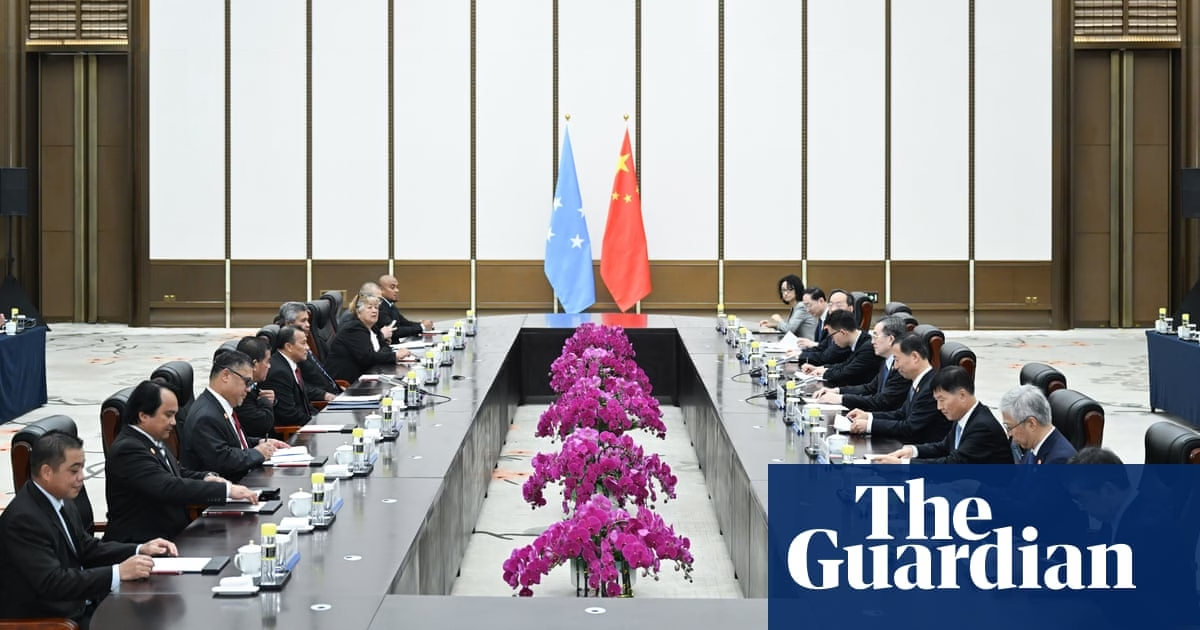Chinese Vice-Premier Ding Xuexiang has pledged stronger policy support for the Chinese economy, as outlined in his keynote speech at a forum aimed at enhancing the nation’s role in Asia and its ties with countries from the global south.
Amidst mounting tariffs on Chinese goods, China is seeking to establish a foundation for growth that is not reliant on a volatile United States. At the Boao Forum for Asia, held in Hainan province, officials and academics emphasized the necessity of partnerships with countries from the global south. Despite three decades of rapid economic development, China still identifies with this group.
Ding, who is China’s sixth-ranking official, stated on Thursday that policies would be implemented in the current year to “stabilise foreign trade and investment”.
At the Boao Forum, an annual business and political summit, the speaker lineup reflected China’s diplomatic shift towards low- and middle-income countries. The prime minister of Laos was the only head of state in attendance, with the deputy prime ministers of Russia and Kazakhstan also participating. There was a panel that included a senior Iranian official, who had reportedly been involved in negotiations for China to supply Iran with ammonium perchlorate, a substance used in missiles. When questioned by the Guardian, the official did not recall the reports and denied any involvement in the negotiations.
“The US has never been on the side of the global south,” said Aravind Yelery, an associate professor at Jawaharlal Nehru University on one of the panels. He suggested that countries like India should seek economic support “within the global south”. This was highlighted as the Indian government reportedly discusses easing restrictions on Chinese trade and investment, measures that were put in place five years earlier following border clashes.
US Tariff Resilience
Resilience against US tariffs was a significant theme at Boao. Ding stated that countries must “resolutely oppose trade and investment protectionism,” referring to US levies.
Zhang Yuyan, an economist from the Chinese Academy of Social Sciences, warned that the “major turbulence” of US policies would affect Asian economic outlooks. Despite this, Zhang and other researchers predict Asia’s GDP growth to be 4.5% in 2025, a slight increase on 2024’s figures, as noted in a report released on Tuesday.
Huang Yiping, an economist from Peking University and an advisor to the People’s Bank of China, stressed the importance of countries cooperating without the US. “Trade barriers are increasing very quickly,” he said, cautioning that US-led globalization could go into reverse.
His comments came after Xi Jinping, China’s leader, introduced a series of measures to support countries from the global south at the G20 summit in Brazil last year.
China now boasts over a dozen free trade agreements with countries from the global south, and the percentage of its exports destined for the US has decreased, dropping to around 13% in 2023. However, experts have pointed out that increased exports to Southeast Asian countries could merely represent companies re-routing goods to the US via third countries to avoid tariffs.
However, despite discussions about strengthening trade and political relations with countries from the global south, many economists believe that the real solution to making China’s economy tariff-proof lies in domestic demand. Policymakers anticipate that exports will contribute minimal to China’s growth this year and that they will have to utilize other means to reach the 5% GDP growth target. Ding also stated that China would seek ways to “comprehensively” increase domestic demand. Several provinces have been instructed to prioritize boosting consumption over investment, but the mechanisms for doing so remain unclear, as many Chinese individuals still choose to save a larger portion of their income compared to global norms.
Peking University economist Huang specifically addressed this point at Boao, stating, “The priority for China is to boost domestic demand,” with another economist arguing that China should take steps to increase consumption’s share of GDP to 70% by 2035.
Source: https://www.theguardian.com/world/2025/mar/28/china-us-relationship-donald-trump-tariffs-partners








